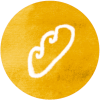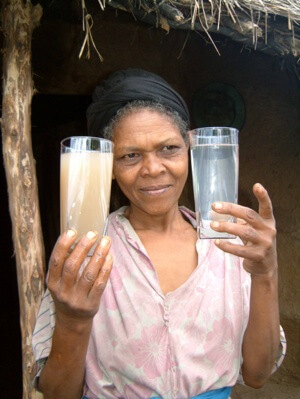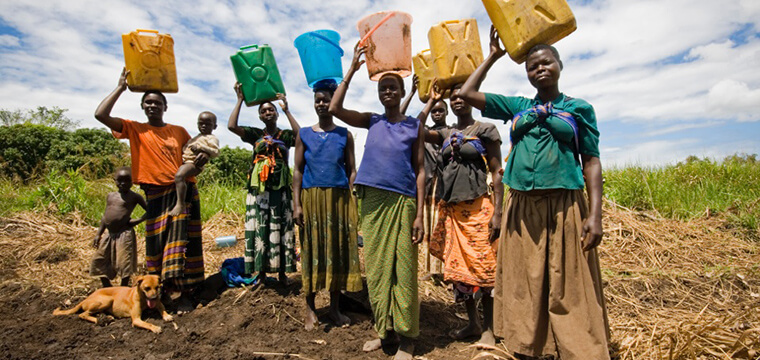 Drinking water shortage
Drinking water shortage
and what can be done about it with simple means
Pean and her daughters had to get their water from a dirty pond near their house every day. Although Pean boiled the water off, it was so heavily contaminated that the family regularly suffered from fever and diarrhea. As soon as it was explained to Pean that there will be a bio-sand-water-filter installed in their village, she applied for a water filter. She learned to build a water filter herself and received hygiene training. Although the construction of the filter was hard, it was worth it: Pean's daughters fall sick less frequently now. So she has to spend less for hospital visits, which she had a hard time affording anyways.
Necessity
Disease caused by polluted drinking water
Activity
Bio-sand-water-filters are installed.
Countable effort
Number of families that can be supplied with filtered drinking water
Result
Reduction of water pollution borne illnesses
Systemic effect
Comprehensive water supply through the bio-sand-water-filter and control of diseases.
Background
In developing countries, many children still die from preventable diseases such as diarrhea and cholera, among others. According to UNICEF, 88 % of these diseases are due to contaminated drinking water. Each year around 1.1 million children die from it. Access to clean water and maintaining hygiene standards help that children and their families are no longer infected by bacteria or germs that are life-threatening. With the bio-sand-water-filter, in one minute one liter of contaminated water is transformed into drinking water. The filter usually supplies a family of six with clean water. It works without electricity and is extremely durable. Through access to clean drinking water, the disease rate drops, so that children can go to school and parents to work regularly.
The good deed
With today's good deed the installation of a bio sand filter in Uganda is supported. The bio-sand-water-filter is a simple and low cost method to convert polluted water into drinking water. In addition, the residents are made aware of the risks associated with dirty water and the importance of compliance with hygiene standards (such as hand washing after using the toilet). The bio-sand-water-filter provides a family of six with fresh water every day, which would otherwise be forced to boil it every day or pay exorbitant prices on the markets.
Challenge
The bio-sand-water-filter are built for the most part by their recipients using on-site materials. Nevertheless, sometimes the filters have to be repaired and sometimes people do not know how to do that so the filters are not functioning properly anymore. In order to prevent this situation, people get trained on hygiene and maintenance of the filter, so that it can work for decades.

AboutUganda
Kampala
Capital
35,357,000 (2013)
Number of inhabitants
589
Gross domestic product per capita per year
161
Human Development Index
Uganda has diverse flora and fauna. People are just as diverse: 40 different ethnic groups live in the country with their own languages, customs and cults.
About the organization and further information
Association
Geschenke der Hoffnung e.V.
DZI seal of approval, Transparent Civil Society Initiative, donation certificate of the German Evangelical Alliance




